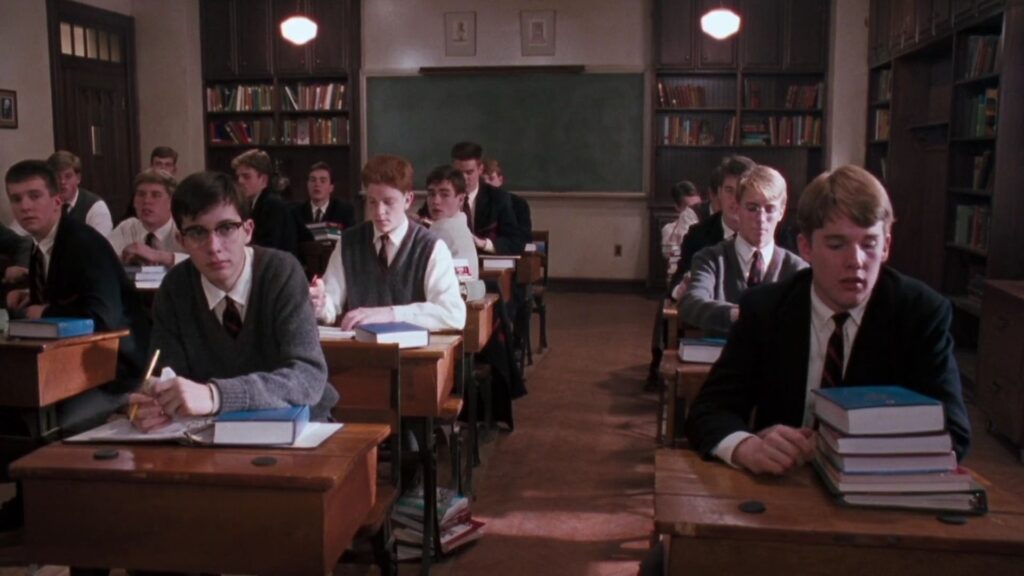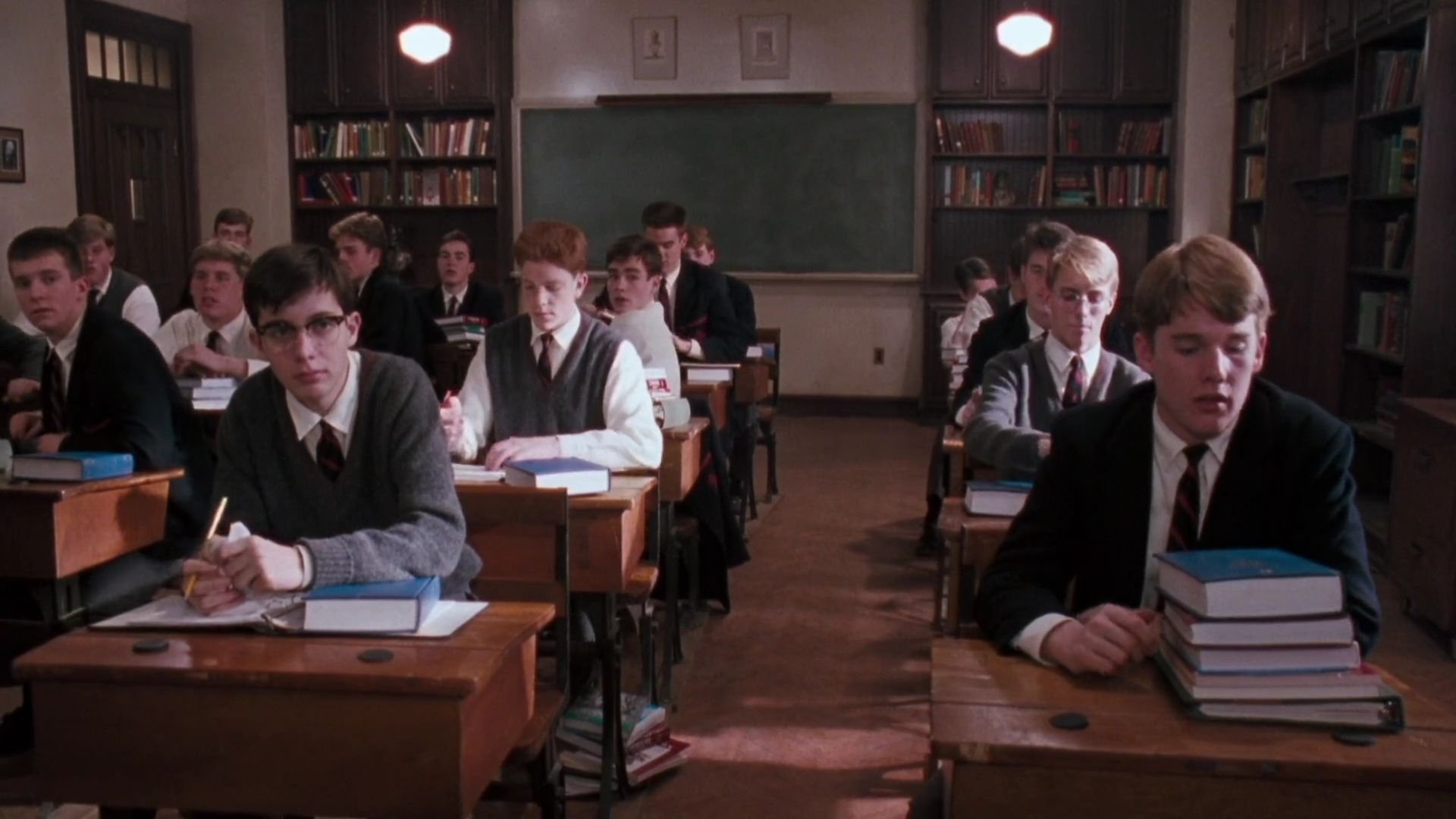
O Captain! My Captain! Unpacking the Enduring Legacy of Dead Poets Society
Dead Poets Society, released in 1989, remains a powerful and resonant film, captivating audiences with its exploration of unconventional teaching, the pursuit of passion, and the importance of seizing the day. The film, starring Robin Williams as the charismatic English teacher John Keating, has sparked countless discussions about education, conformity, and the courage to live authentically. This article delves into the film’s enduring legacy, examining its themes, impact, and continued relevance in contemporary society.
A Synopsis of Dead Poets Society
Set in 1959 at the prestigious Welton Academy, an all-boys preparatory school, Dead Poets Society introduces us to a group of bright and ambitious students stifled by tradition and parental expectations. The arrival of John Keating, a new English teacher with a penchant for poetry and unconventional methods, shakes things up. Keating encourages his students to “seize the day” (carpe diem), to think for themselves, and to discover their own passions. He reignites the Dead Poets Society, a secret club where students gather to read poetry, express themselves, and challenge the status quo. The film follows the students’ journey as they grapple with Keating’s teachings, navigate societal pressures, and ultimately learn the importance of living a life true to themselves.
Thematic Resonance: Carpe Diem and the Pursuit of Passion
At the heart of Dead Poets Society lies the theme of carpe diem, Latin for “seize the day.” Keating implores his students to make the most of their lives, to break free from societal constraints, and to pursue their passions with unwavering dedication. This message resonates deeply with audiences, particularly young people struggling to find their place in the world. The film champions individuality and self-discovery, encouraging viewers to question authority and to forge their own paths. The characters Neil Perry’s passion for acting, and Todd Anderson’s journey to overcome his shyness, are central to this theme. The film highlights the importance of finding your voice and expressing it fearlessly, even in the face of adversity.
The Power of Poetry and Literature
Dead Poets Society celebrates the transformative power of poetry and literature. Keating uses poetry to inspire his students, to challenge their perspectives, and to connect with them on a deeper emotional level. The film features works by iconic poets such as Walt Whitman, Robert Frost, and Lord Byron, showcasing the beauty and depth of the written word. Poetry becomes a tool for self-expression, a means of understanding the world, and a source of inspiration for the students. The film underscores the importance of arts and humanities in education, highlighting their ability to foster critical thinking, creativity, and empathy.
Challenging Conformity and Authority
The film also critiques the rigid conformity and unquestioning obedience that often characterize traditional educational institutions. Welton Academy represents a system that prioritizes academic achievement and adherence to rules over individual growth and self-discovery. Keating challenges this system by encouraging his students to think for themselves, to question authority, and to embrace their individuality. The Dead Poets Society becomes a symbol of rebellion against conformity, a space where students can express themselves freely and explore their passions without fear of judgment. [See also: The Importance of Critical Thinking in Education] The film raises important questions about the role of education in shaping young minds and the need to foster independent thought and creativity.
The Tragedy of Neil Perry: The Consequences of Unfulfilled Dreams
The tragic fate of Neil Perry serves as a cautionary tale about the consequences of suppressing one’s passions and succumbing to societal pressures. Neil’s dream of becoming an actor is thwarted by his overbearing father, who demands that he focus solely on academics and prepare for a career in medicine. Unable to reconcile his passion with his father’s expectations, Neil takes his own life. Neil’s death is a devastating blow to the other students and a stark reminder of the importance of living authentically. It highlights the dangers of parental pressure and the need for young people to have the freedom to pursue their own dreams. The Dead Poets Society emphasizes the need for open communication and understanding between parents and children, and the importance of supporting young people in their pursuit of their passions.
Robin Williams’s Iconic Performance
Robin Williams’s portrayal of John Keating is arguably one of the most memorable performances of his career. Williams brings a unique blend of charisma, wit, and compassion to the role, making Keating a deeply inspiring and relatable figure. His improvisational skills and his ability to connect with young actors made him the perfect choice for the part. Williams’s performance captures the essence of Keating’s philosophy and inspires viewers to embrace life to the fullest. The Dead Poets Society showcased Williams’s ability to seamlessly blend comedy and drama, solidifying his status as one of the most versatile actors of his generation.
The Film’s Impact on Education
Dead Poets Society has had a significant impact on education, inspiring teachers to adopt more student-centered and engaging teaching methods. The film has sparked discussions about the importance of creativity, critical thinking, and self-expression in the classroom. Keating’s unconventional approach to teaching, which emphasizes student participation and independent thought, has served as a model for educators seeking to create more dynamic and empowering learning environments. [See also: Innovative Teaching Methods in the 21st Century] The film has also raised awareness about the pressures faced by young people and the need for schools to provide support and guidance to help them navigate these challenges. Many educators cite Dead Poets Society as an inspiration for their own teaching practices, striving to create classrooms where students feel empowered to think for themselves and pursue their passions.
Criticisms and Controversies
Despite its widespread acclaim, Dead Poets Society has also faced criticism. Some critics have argued that the film romanticizes rebellion and portrays authority figures in a negative light. Others have questioned the effectiveness of Keating’s teaching methods, arguing that they are unrealistic and unsustainable. Additionally, some have criticized the film’s simplistic portrayal of complex issues such as parental pressure and mental health. However, even critics acknowledge the film’s powerful message about the importance of self-discovery and the pursuit of passion. The Dead Poets Society continues to be debated and analyzed, prompting ongoing discussions about education, conformity, and the challenges of adolescence.
The Film’s Enduring Relevance
Decades after its release, Dead Poets Society continues to resonate with audiences of all ages. Its themes of self-discovery, the pursuit of passion, and the importance of living authentically remain timeless and universal. In a world that often prioritizes conformity and achievement, the film’s message about embracing individuality and seizing the day is more relevant than ever. The Dead Poets Society inspires viewers to question societal norms, to challenge authority, and to forge their own paths in life. The film’s enduring popularity is a testament to its powerful message and its ability to connect with audiences on a deep emotional level.
Dead Poets Society in Popular Culture
The film’s impact extends beyond the realm of education, influencing popular culture in various ways. The phrase “carpe diem” has become a widely recognized motto, inspiring people to make the most of their lives and to seize opportunities. The film has been referenced in countless movies, television shows, and books, solidifying its status as a cultural touchstone. The image of John Keating standing on his desk, encouraging his students to see the world from a different perspective, has become an iconic symbol of unconventional teaching and the power of inspiration. The Dead Poets Society continues to be celebrated and reinterpreted, ensuring its place in cinematic history.
Conclusion: Seize the Day
Dead Poets Society is more than just a film; it is a call to action. It is a reminder to embrace life to the fullest, to pursue our passions with unwavering dedication, and to never be afraid to challenge the status quo. The film’s enduring legacy lies in its ability to inspire audiences to think for themselves, to question authority, and to live authentically. So, take a page from John Keating’s book and carpe diem – seize the day and make the most of your life. The Dead Poets Society‘s message continues to inspire generations to live life to the fullest.

